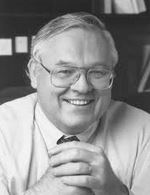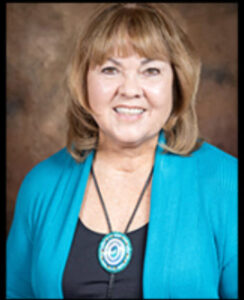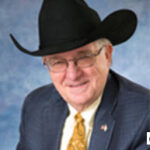Archive for GOVERNING BOARD – Page 3
DISTRICT GOVERNING BOARD HASTILY CALLS FOR SECRET EXECUTIVE MEETING DECEMBER 14 TO AGAIN DISCUSS POTENTIAL LEASE AND/OR PURCHASE OF REAL PROPERTY, OR PROPERTIES, IN PRESCOTT
NOTE: DISTRICT GOVERNING BOARD MEMBERS HOLD HOLIDAY DINNER FOR THEMSELVES ON DECEMBER 6 IN PRESCOTT
No business transacted
A holiday dinner party was held for the five members of the Yavapai Community College District Governing Board on Wednesday, December 6 at Murphy’s Restaurant in Prescott. No business was transacted during the dinner. The public was not invited.
GOVERNING BOARD MEETS IN SECRET EXECUTIVE SESSION TO SET GOALS FOR COMMUNITY COLLEGE PRESIDENT BUT REFUSES TO INFORM COUNTY RESIDENTS OF THOSE GOALS FOLLOWING SECRET MEETING
Only information provided County residents after Tuesday’s meeting was a Board motion stating that it “accepts the goals” it set during the secret meeting

Robert Oliphant, Editor
EDITORIAL: In the shadows of secrecy, the Yavapai Community College District Governing Board met on Tuesday, September 19, 2023, with a significant agenda item—establishing goals for Dr. Rhine in the upcoming academic year. The veil of confidentiality shrouding the meeting would be comical except for its importance to County residents.
Following the closed-door secret executive session, a motion was passed, stating, “We accept the goals that we all set for Dr. Rhine and look forward to a prosperous 2023-2024.” A harmless statement concealing a disquieting truth about what was actually decided..
It is of concern that there was a total absence of any prior discussion about setting goals in the public domain. It is as if the residents of Yavapai County have been left in the dark, their curiosity about the health of the College and the goals set for the College’s chief executive is being met by the Governing Board with a resounding silence. The secrecy that surrounds these objectives denies County taxpayers any insight into the very essence of their Community College’s aspirations for the coming year.
The consequences of this secrecy extend beyond mere curiosity. It fundamentally undermines the principles of transparency and accountability that should be the bedrock of any publicly funded educational institution. Without knowledge of the goals established, residents are rendered impotent in their ability to assess the achievements and progress of Dr. Rhine as the College’s president.
In essence, the result of the Governing Board’s secrecy erases any semblance of public accountability. The very residents who support Yavapai Community College with their hard-earned tax dollars are denied the right to participate in the essential process of evaluating their College’s leadership.
Moreover, the lack of transparency has a domino effect. It renders residents incapable of determining whether the Governing Board itself is effectively executing its duty of setting goals and providing effective direction for the College. The College, which is funded to the tune of over a hundred million dollars a year by taxpayers, deserves an open and participatory governance process that safeguards the public interest.
Hiding these goals behind closed doors not only robs residents of their rightful involvement but also obscures the path Yavapai Community College is intending to take over the coming year. What were these goals, and how do they reflect the aspirations of the diverse communities in the County? These questions remain unanswered, lingering in the shadows, casting a pall over the institution’s integrity.
It is imperative that the Community College uphold the principles of transparency, accountability, and public engagement. The Yavapai Community College District Governing Board must recognize its responsibility to the residents it serves, for it is they who entrust it with their resources and their aspirations.
BOARD CHAIR DEB MCCASLAND AND PROFESSOR JERALD MONAHAN RECOGNIZED BY ASSOCIATION OF COMMUNITY COLLEGE TRUSTEES IN PACIFIC REGION FOR LEADERSHIP AND COMMITMENT TO STUDENTS
Second consecutive year McCasland has been recognized nationally; Monahan described as a “dedicated educator and former law enforcement officer with a passion for empowering others”
In a press release issued by Yavapai Community College on September 15 it was announced that District Governing Board Chair Deb McCasland and Professor Jerald Monahan were regional winners and national finalists for the Association of Community College Trustees awards. Last year, McCasland received the American Association of Community Colleges’ Trustee of the Year award.
The American Association of Community College Trustees is a nonprofit business involved with advocacy efforts aimed at federal government. It also provides Yavapai Community College for a charge its educational services, including annual conventions and seminars, instructional publications, and other board services. The College has hired it in a number of capacities over the years.
You may read the press release from Yavapai Community College written by JJ McCormack that contains additional information about the recognition by clicking here.
AFTER ALMOST FOUR MONTHS WITHOUT A REGULAR BUSINESS MEETING, YAVAPAI COMMUNITY COLLEGE SCHEDULES A SESSION FOR SEPTEMBER 19 AT THE ROCK HOUSE ON PRESCOTT CAMPUS
Study session to run from 1:00 p.m. for over an hour. There are 15 minutes set aside for a business meeting. A 90 minute secrete executive will then be held to establish goals for President Rhine in the coming year. Board rejects modern technology and will not live stream meeting
 The Yavapai Community College Governing Board is scheduled to meet on September 19 at the Rock House on the Prescott Campus. The first part of the agenda called a “work session” is scheduled to begin at 1:00 p.m. According to the announced agenda, about 15 minutes have been set aside for a “business meeting” later is the session. That will be followed by a secret executive meeting that may run for an hour and a half (See agenda). The purpose of the executive meeting is to set goals for President Dr. Lisa Rhine for the coming year.
The Yavapai Community College Governing Board is scheduled to meet on September 19 at the Rock House on the Prescott Campus. The first part of the agenda called a “work session” is scheduled to begin at 1:00 p.m. According to the announced agenda, about 15 minutes have been set aside for a “business meeting” later is the session. That will be followed by a secret executive meeting that may run for an hour and a half (See agenda). The purpose of the executive meeting is to set goals for President Dr. Lisa Rhine for the coming year.
About ten minutes have been set aside at the beginning of the meeting for input on any subject by members of the public. A citizen wishing to address the Board is normally asked to complete a “Request to Speak” form, and give it to the Recording Secretary. The speaker should be prepared to limit his or her remarks to the designated time (from one to three minutes although typically three minutes).
Under Arizona law, a citizen has a right to attend, listen, tape record, or videotape all of these meetings. The public may not disrupt, but may speak during the Call to the Public at the beginning of this meeting if the call is on the agenda. See Ariz. Att’y Gen. Op. No. I78-001.
You may access the minimalistic agenda that appeared on the Governing Board’s Saturday morning September 16 website by clicking here. https://www.yc.edu/v6/district-governing-board/sub/2023/09/09-19-2023-meeting-summary.pdf.
The less than opaque process regarding distribution of information to the community by the Governing Board is disturbing. Few know much at all about the operational decisions involving its two campuses and four centers in the County. This presents a significant challenge for rural residents throughout the County interested in the health of the College.
One example of the opaque process is how the agenda is handled. The agenda provided prior to the handful of yearly Board meetings leaves community members with scant opportunity to familiarize themselves with items touched because of the intentionally sparse descriptions of agenda items. This lack of detail creates a formidable hurdle, if not an insurmountable one, in evaluating whether a particular agenda item justifies the significant sacrifice of a 100 to 200-mile round trip and a day off from work to attend the meeting in person.
Another example of the opaque process is the Governing Board’s rejection of of modern technology. Despite having all the equipment and personnel needed, it refuses to live-stream its infrequent sessions exacerbates the problem about a resident of the County gaining meaningful information. County residents are left without real-time updates and information about the affairs of a $100 million dollar government educational institution funded by their property taxes.
A third example of the satisfaction the Board has with the out-of-date opaque process is its refusal to require those using PowerPoint slides during a meeting to provide them so they can be posted on the Board website either prior to or after their use during a meeting.
There is a pressing need for greater transparency and accessibility in the District Governing Board’s proceedings. Rural residents and taxpayers deserve a more inclusive and informative process, particularly for a publicly funded institution of this magnitude. Or maybe, there’s a pressing need for new Board members who actually care about providing their constituents with actual information.
YAVAPAI COMMUNITY COLLEGE GOVERNING BOARD CHAIR McCASLAND NAMED NATIONAL TRUSTEE OF THE YEAR BY THE AMERICAN ASSOCIATION OF COMMUNITY COLLEGES
The award recognizes her “significant contributions,” “demonstrated exceptional leadership” while presiding “over significant achievements” as Governing Board Chair
Yavapai Community College District Governing Board Chair Deb McCasland was named national trustee of the year April 4, 2023, by the American Association of Community Colleges (AACC) at its annual meeting in Denver, Colorado. Ms. McCasland is a Yavapai Community College almna who has served on the District Governing Board for eight years, the last three as Chair.

District Governing Board Chair Deb McCasland
She was nominated for the AACC Trustee of the Year award by Dr. David B. Borofsky, Director of the Arizona Association of Community College Trustees. The award celebrates a trustee who has made significant contributions to the college, demonstrated exceptional leadership, and presided over significant achievements that benefit the college, district, state, system, or foundation.
In his nomination letter, Borofsky lauded McCasland’s “amazing growth” as a leader, her tireless community engagement and statewide advocacy efforts, and her unmatched passion for student success. “She is THE trustee who is focused on student success,” Borofsky wrote.
“Chair McCasland avidly supports [Yavapai Community College,] its students, and our communities. She is a true leader, and her passion and dedication towards student success never waivers,” said Dr. Lisa Rhine, President of the College. “There is nobody more deserving of this award than Deb.”
In 1976, McCasland began her 34-year career at the College as the Yavapai Community College Student Activities Director. Among her many achievements before joining the Community College Governing Board were founding and developing the Community Events program and the Performing Arts Charitable Endowment. In 2010, she was chosen as an Outstanding Yavapai College alumnus. She retired from Yavapai Community College in 2011 as Director of Major Gifts for the Community College Foundation. She has been elected three times to represent District Two on the Yavapai College District Governing Board.
The AACC is a non-profit advocacy organization for the nation’s community colleges. It represents nearly 1,200 institutions and more than 11 million students. The Awards of Excellence reflect and advance the association’s priorities and spotlight “promising practices” among member colleges.
To learn more about YC, visit http://ww.yc.edu.
Source: Yavapai Community College press release of April 4, 2023, which you may view here: https://www.yc.edu/v6/news/2023/04/deborah.html
COLLEGE EXPECTED TO DISCLOSE HOW IT WILL SPEND $3.4 MILLION ON WORKFORCE HOUSING AT APRIL GOVERNING BOARD MEETING
April disclosure, if it occurs, follows February 24, 2023, Board Executive meeting where Community College staff received secret direction regarding “affordable housing” and potential purchase of real property in Yavapai County near Prescott Valley, and negotiations for potential lease of real property in Yavapai County near Verde Valley
 Yavapai Community College has included in its draft capital improvement budget, unwrapped at the March 2023 Governing Board meeting, an expenditure of $3.4 million for “Workforce Housing.” At that meeting the Community College’s Prescott-based executives were unable or unwilling to disclose precisely how the money would be used.
Yavapai Community College has included in its draft capital improvement budget, unwrapped at the March 2023 Governing Board meeting, an expenditure of $3.4 million for “Workforce Housing.” At that meeting the Community College’s Prescott-based executives were unable or unwilling to disclose precisely how the money would be used.
The executives indicated at the March meeting that how the funds would be used would be disclosed at the April meeting, where a final Capital budget would be produced. To date, neither the public nor the Blog have any further information about this expenditure.
Please click here to take you to the Blog story about the Executive meeting in February 2023 where the statement by the Board was made regarding the directions to the staff about the property lease and purchase was made.
MR. TOBY PAYNE JOINS YAVAPAI COMMUNITY COLLEGE DISTRICT GOVERNING BOARD
Took oath of office Tuesday, March 21 at Governing Board meeting
Clarkdale’s Mr. Toby Payne was sworn in to fill the unexpired two-year term of Mr. Paul Chevalier at the Yavapai Community College District Governing Tuesday, March 21 Governing Board meeting in Sedona by Yavapai County School Superintendent Mr. Tim Carter.
Payne, is a resident of Clarkdale and was appointed to the District 3 seat vacated in January. District 3 consists of Big Park, Bridgeport 1 and 2, Clarkdale, Clemenceau, Coffee Pot, Cottonwood, Fir, Jacks Canyon, Jerome 1 and 2, Mingus, Orchard, Quail Springs, Red Rock 1 and 2, Red Rock East, Red Rock West, Verde Village, Western, and Wild Horse. His term will run through 2024.
Governing Board chair Deb McCasland welcomed Mr. Pay to the Governing Board. She said that she was excited to welcome Toby Payne to our Board and believes he will be a great representative for our students and the communities in the Verde Valley and all of Yavapai County.”
You may find more information about Mr. Payne by clicking here and you will be taken to a Blog story about him. You may also visit the press release about his appointment issued by the Community College of March 21, 2023 by clicking here
DISTRICT GOVERNING BOARD LEAVES COUNTY RESIDENTS GUESSING ABOUT PLANS TO PURCHASE PROPERTY IN PRESCOTT VALLEY AND LEASE LAND SOMEWHERE IN THE VERDE VALLEY
Governing Board in the form of a motion vaguely suggests land purchase in Prescott Valley and leasing land somewhere near the Verde Valley involves obtaining affordable housing for students and staff
 After a two-hour closed door executive meeting at the February 24, 2023, District Governing Board Workshop, the Board issued a vague statement in the form of a motion unanimously approved suggesting that the proposed purchase and lease of land referred to in the agenda involved obtaining affordable housing for staff and students. Not another word was uttered, except for the President thanking the Board.
After a two-hour closed door executive meeting at the February 24, 2023, District Governing Board Workshop, the Board issued a vague statement in the form of a motion unanimously approved suggesting that the proposed purchase and lease of land referred to in the agenda involved obtaining affordable housing for staff and students. Not another word was uttered, except for the President thanking the Board.
The notice on the agenda for the Workshop read in part that the Board was going to meet in an executive session to discuss and consult about the “Potential Purchase of Real Property in Yavapai County near Prescott Valley,” and “Confirm Instructions to College Representatives Regarding Negotiations for Potential Lease of Real Property in Yavapai County near Verde Valley.”
The motion made by District One Representative Ray Sigafoos after the Board returned from its closed-door deliberation, said:
“We have spent the last hour and a half or two discussing options for, trying to address the affordable housing situation with our employees potentially and currently and also our student body. We have developed some options that we have given direction to the staff to implement and I would move that the a, this a, directions be given as we have identified them and to carry forward and bring back the results.”
The motion was seconded, there was no discussion, and unanimously approved. The Board then moved on to other matters.
County residents were left to wonder what the Board was up to. However, following its pattern of keeping as much information about sensitive topics from the public as possible, the public was left in the dark.
You may view the brief motion made at the Workshop by Mr. Sigafoos by clicking here.
AFTER MONTHS OF COMPLAINTS FROM REPRESENTATIVES SIGAFOOS AND CHEVALIER, YAVAPAI COMMUNITY COLLEGE GOVERNING BOARD ADMINISTRATIVE SUPPORT STAFF BEGINS PROVIDING MORE DETAILED WRITTEN MINUTES
Representative Sigafoos lauds administrative staff for the improvement
It’s been a year or more since Representatives Ray Sigafoos and Paul Chevalier raised concerns about the incomplete minutes of the District Governing Board meetings. The initial response to their concerns from some Governing Board members and others was that videotapes being made of a Board meeting were sufficient as a record and detailed written minutes were unnecessary.

Former Third District Representative Paul Chevalier

Representative Ray Sigafoos
The stripped down minutes had suddenly appeared months ago represented a significant change from more than a decade when detailed written minutes of Governing Board meetings were prepared. This was the case even though for several past years the meetings were videotaped.
However, it became clear upon close inspection over a period of months that the videotape of Board meetings was sometimes less than complete. Problems cropped up with the sound tracks, especially when microphones were accidentally turned off or not working, and what was said was lost. It soon became clear that more detailed minutes were was necessary.
However, the change in the approach to preparing minutes in greater detail was not made until the January 2023 meeting. The long delay in response to the representatives concern, it is believed, was due in part to a staffing issue.
Regardless of the reason, finally, the concerns expressed by Mr. Sigafoos and Mr. Chevalier about the absence of detailed minutes of District Board meetings is being met.
You may view Mr. Sigafoos congratulating the Community College administrative staff on their efforts to begin producing more detailed written minutes of Board meetings by clicking here.
Copyright © 2025 All Rights Reserved
 Yavapai Community College’s District Governing Board was hastily called into a one-hour secret executive meeting on Thursday, December 14 to discuss and consult “with College Representatives Regarding Potential Lease and/or Purchase of Real Property, or Properties, in Prescott.”
Yavapai Community College’s District Governing Board was hastily called into a one-hour secret executive meeting on Thursday, December 14 to discuss and consult “with College Representatives Regarding Potential Lease and/or Purchase of Real Property, or Properties, in Prescott.”